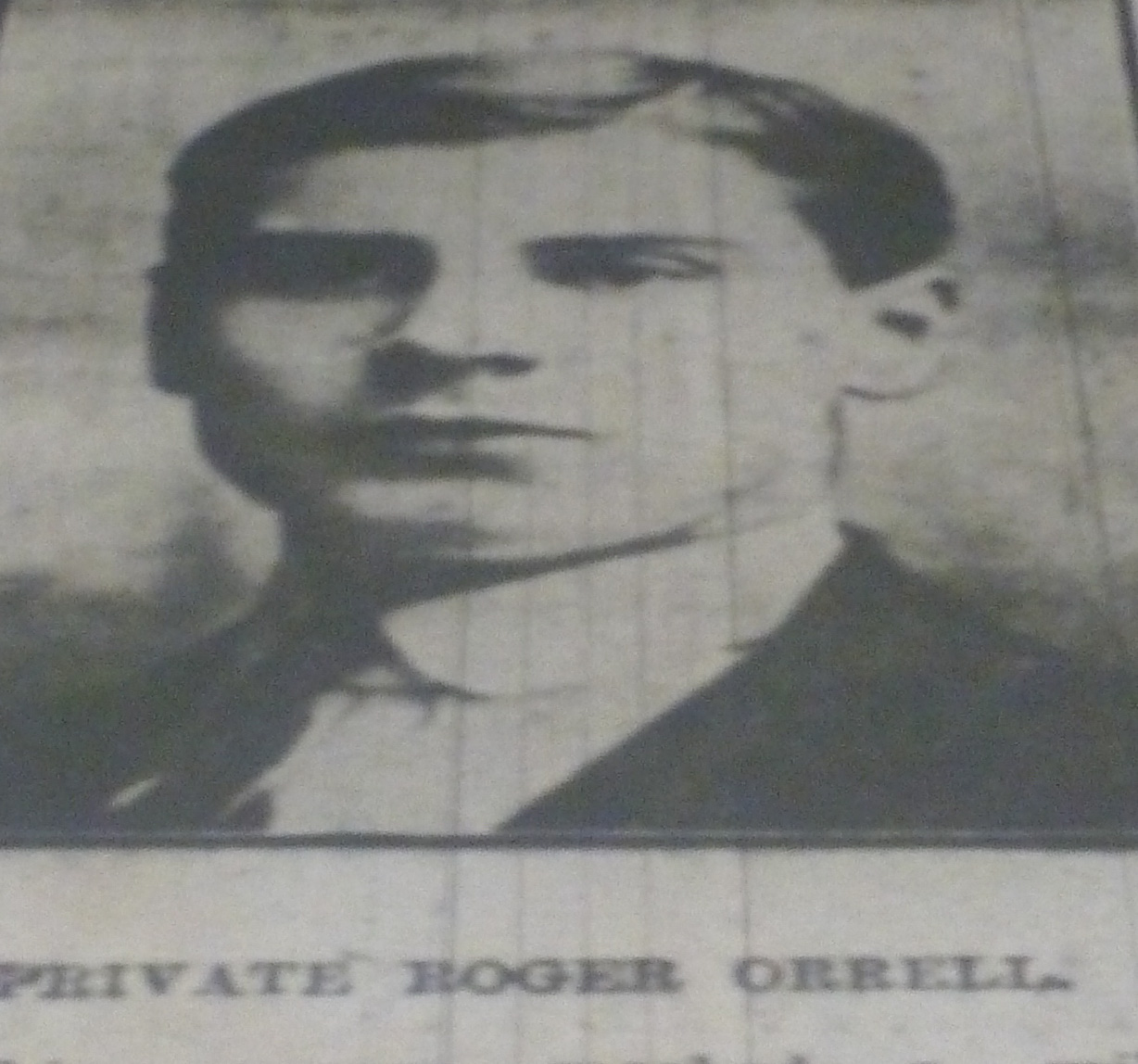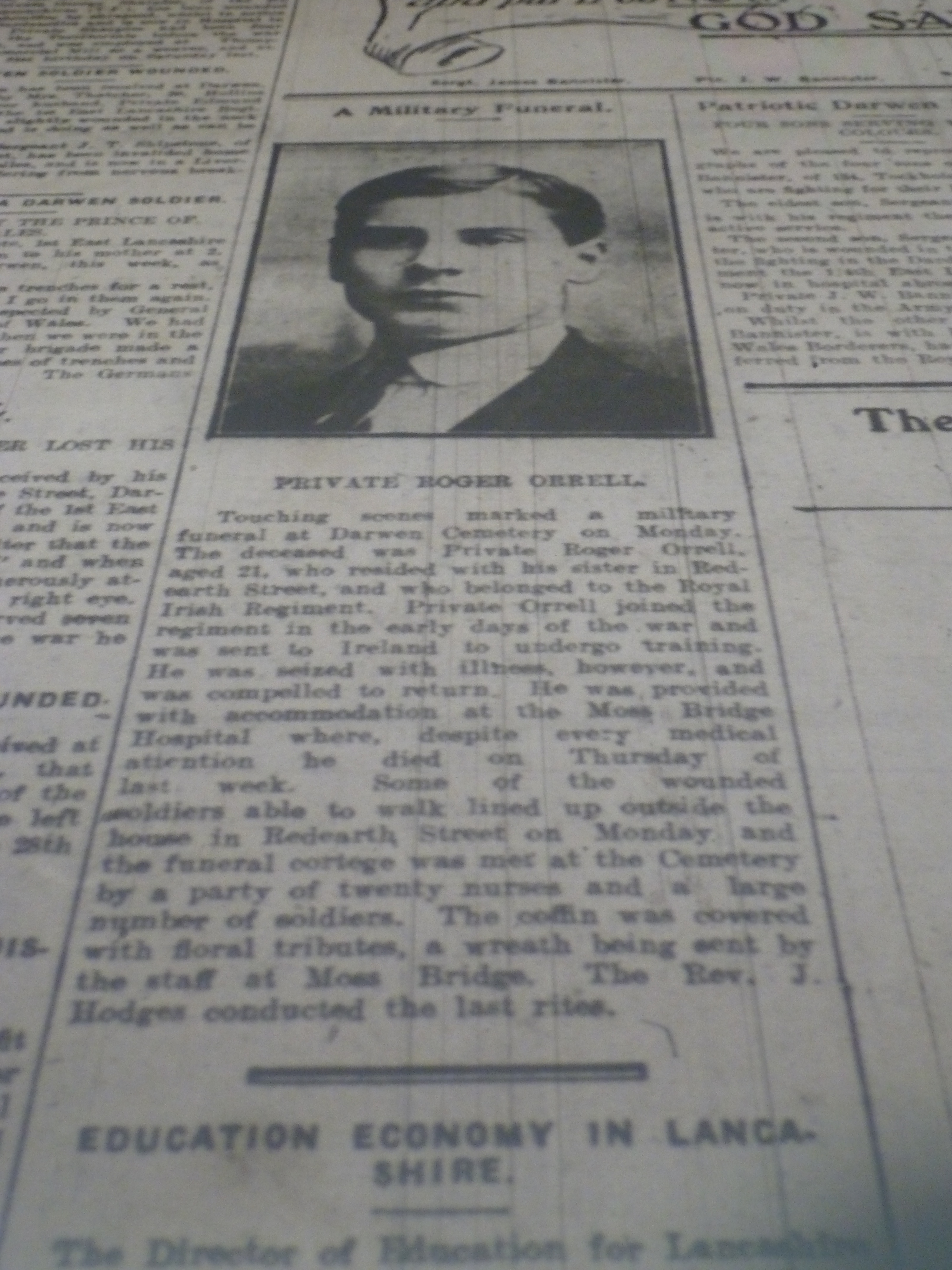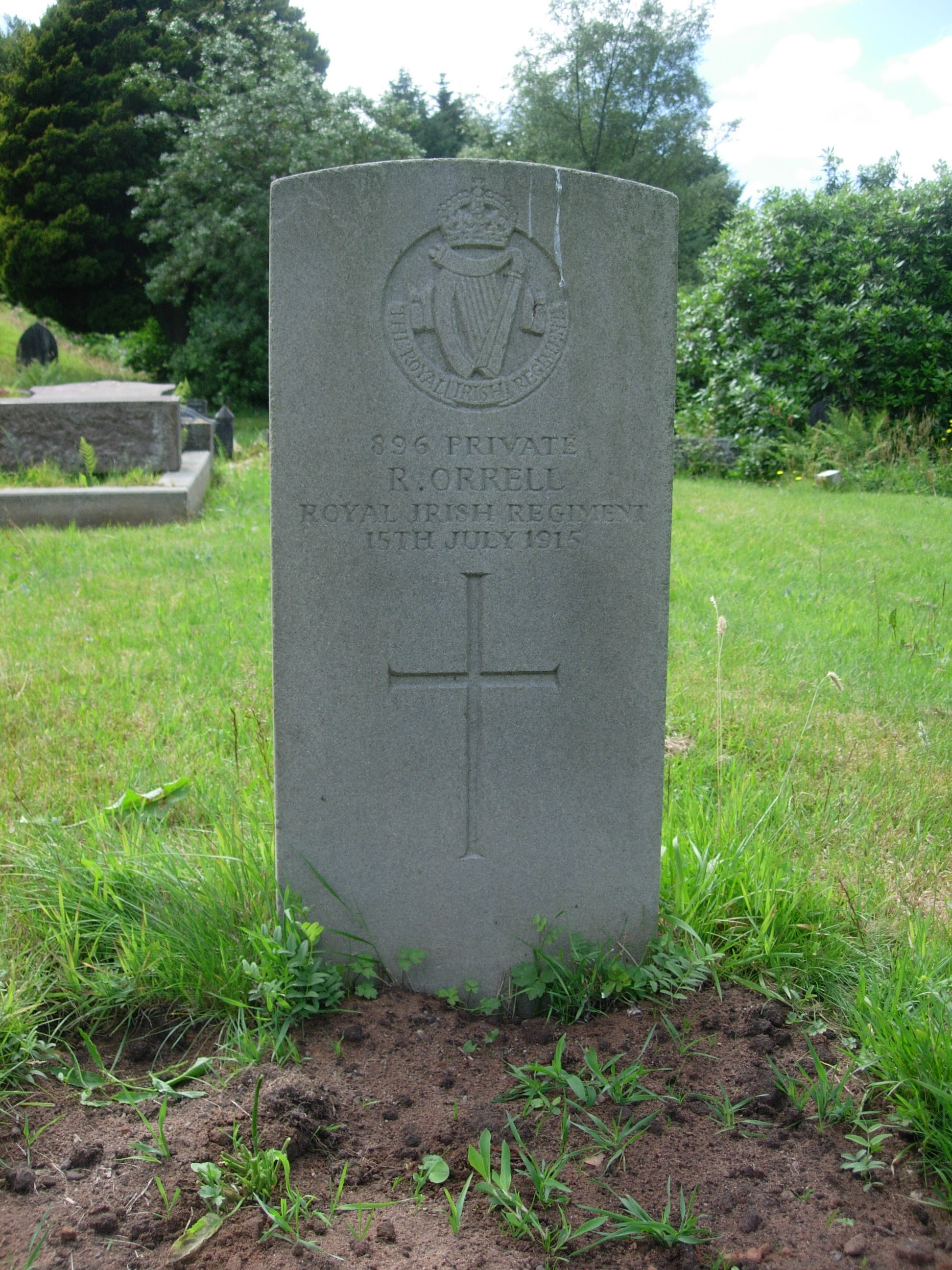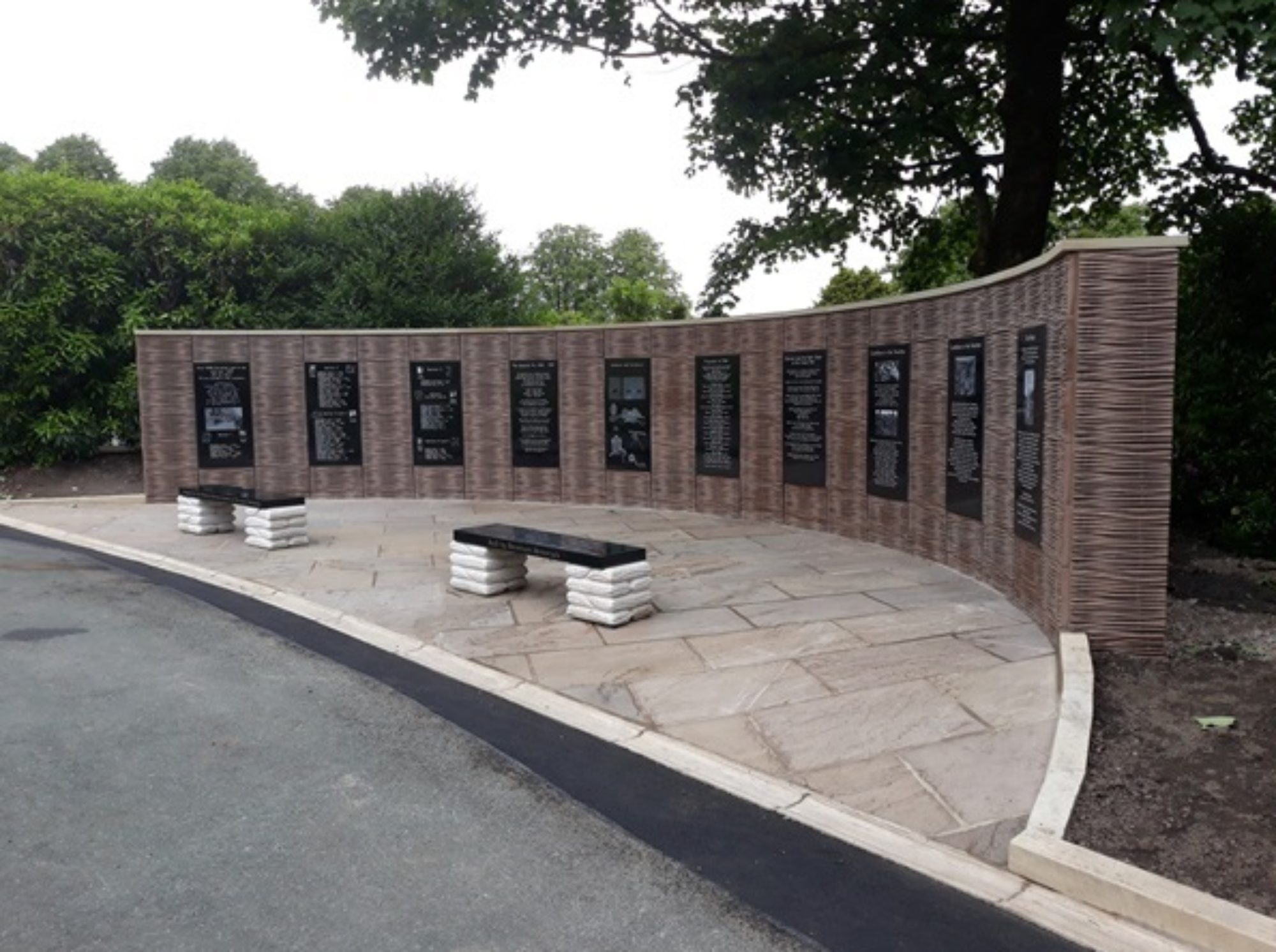A YOUNG MAN PREPARES FOR WAR

Young Roger Orrell is a handsome man by any standards. Had he been born somewhere else but close to the mills of East Lancashire then his film star looks would have meant a more lucrative career than being a labourer in the local paper mill. At the outbreak of the Great War Roger is 20 years old. Young Roger is in love and before this war was declared felt his future was mapped out. He knows that escaping from the relatively poor financial circumstances of industrial Darwen is unlikely, but he accepts that situation as long as he can marry his beloved Nellie, a weaver in one of the local cotton mills. One thing he also accepts and without question was that as war has been declared he must go and fight. The urgings of his local contemporaries and management of the mill, plus the even greater pressure from the clergy in the pulpit at his church every Sunday, leaves him in no doubt that the cause was right and just and he has to do his duty. He can risk going to war far more than he can face walking the streets of Darwen as a fit able young man that has not enlisted.
As soon as he is able Roger joins the army and is initially enlisted in the Somerset Light Infantry and starts his training at their barracks in Taunton, Somerset. He is not there for long and is transferred to the Royal Irish Regiment and becomes Private Roger Orrell No: 896 of the 5th Battalion. The bare facts of this are interesting to me and are a coincidence in that I now live near Taunton after living most of my life where Roger did, and my wife’s family are from Ireland. Other than that, I cannot add anything as to why Roger ended up in an Irish regiment so far away from home, rather than being sent straight over to France after initial training. For Roger this seems to be the most exotic of postings to his young mind, but the reality is that conditions in Ireland prove to be harsh. British soldiers are not overly welcome, the political climate is gearing up towards an uprising. Leaving the training barracks is a rare occurrence so the posting to Ireland is a massive culture shock to Roger.
The exotic part of all this is the train journey to Liverpool and the crossing of the rough Irish Sea by boat to Ireland. That journey is a long distance and is the farthest Roger has travelled from his home town of Darwen. It is an exciting time for him to escape the narrow confines of the small mill town. Back home in Darwen the farthest he has journeyed would have been a tram ride into the neighbouring larger town of Blackburn. Even then, that is mostly taking the shorter distance to Ewood Park to watch Blackburn Rovers on the Saturday afternoon he always has free after working in the paper mill Saturday morning. Other than this brief foray outside of the Darwen boundaries he occasionally does ride the tram to the top of the hill just past the cemetery and walk over the moors to Edgeworth to see some of his Orrell relatives, to whom he has a close attachment.
The 5th Battalion Irish regiment were formed at Clonmel at the start of the war and they were destined to be sent to Gallipoli after their training. Training for Roger and his colleagues involves a lot of live ammunition practice and of course the cold steel of bayonet drills. His training does not last long as in early April of 1915, Roger Orrell is involved in a training accident involving live ammunition that leaves him seriously ill with a perforated bowel. The condition is assessed in Ireland and is deemed to be so serious that rather than leave him in Ireland, a long way from his Lancastrian home, he is shipped back as soon as is practicable to the UK. He begins to be treated and kept as comfortable as possible at the Moss Bridge Hospital in Darwen, at that time being used as a military facility for wounded servicemen. In the hospital at Moss Bridge Roger comes face to face with the reality of fierce combat in the actual theatre of war. He now realises why the troops were not home for Christmas, the war he now knows is not a game, but a place of horrific and senseless slaughter.
During his time at the hospital there arrives by train a contingent of Belgium and French wounded soldiers and it is this connection with the actual front line that leaves him in no doubt about the atrocities of war taking place on the continent of Europe. Ironically Roger himself has never reached the front line of combat but tragically had received similar injuries while awaiting his turn to serve at the front. Over many weeks Roger’s condition does not improve and he bravely endures a painful and ultimately fruitless fight for life for many weeks, before he finally dies on Thursday 15th July 1915, his family at his bedside, and attended by the nurses who provided such wonderful care in that hospital, much of which was given over to the soldiers from France and Belgium. He dies ultimately from septicaemia, suffering horribly for many weeks, to the distress of all those around him.

He has had the best possible care available for the times and thankfully does not have to suffer in a field hospital hundreds of miles from home. Rogers body is taken to rest at the home that he had shared with his sister and mother in Redearth Street, Darwen. As is the custom he is placed at repose with the family in the front parlour until the day of his funeral on the following Monday. The town of Darwen has already witnessed many funerals in the course of the pursuance of the war, but Roger’s service and procession is an outstanding tribute to a fine young man, one who was as well respected and loved as anyone in the town. His procession to his last resting place in Darwen Cemetery brings the town to a standstill. Any of the wounded soldiers from the Moss Bridge Hospital that were able to walk, line up outside the house on Redearth Street and followed the cortege to the cemetery. Roger’s coffin and hearse are completely covered with floral tributes to Roger. When the procession has made its slow progress up Bolton Road arriving at the gates of the cemetery, it is first of all met by twenty tearful nurses from the Moss Bridge hospital, all of whom have either treated the young man or been touched by his resilience and no doubt also his attractive looks and personality. Standing immediately behind the group of nurses and leading the way to the graveside are many uniformed soldiers, ones from the hospital that could not make the walk behind the cortege and had arrived by tram, alongside any that were home on leave at this time. There is a large contingent from the Irish Regiment. It is a colourful, impressive, though solemn scene, as the party moves through the open wrought iron gates, winding the way around the narrow paths to the graveside, a short distance up the hillside. Now after this display of respect the trams and traffic can once again use the main road in and out of Darwen.
Just opposite the cemetery gates today is a small section of preserved tram rail, a small reminder of the times that Roger lived in back in the early part of the 20th Century. The Reverend J. Hodges conducts the final service at the graveside, a grave I have visited often and one that is touchingly maintained by the children of a local school who have adopted it into their care. My great grandmother Sarah Atherton is heartbroken at the death of her brother but she still has more tragedy to come as her little boy Roger would die four years later in that road accident.
In the local paper, the Darwen Advertiser on the 23rd July 1915 there was a small notice inserted – it read:
Roger – In memorial from your sweetheart Nellie.
I have not been able to trace who Nellie was, other than the possibility that she was Nellie Entwistle, a possible cousin of Roger who lived and worked as a weaver in Darwen.
Did Nellie ever marry? Perhaps not. In my youth, my home town of Darwen was filled with elderly spinster ladies who never found love again after losing their fiancés in the Great War. Many of these lived together as if they were sisters and indeed many were actual fleshly sisters. These ladies were content, gentle, resigned women. It seemed they all shared a common sadness, a life unfulfilled, a situation thrown into their lives that they could never move on from. If truth be told they felt guilty if they even had the thought that they should move on with their lives. I really hope Nellie was not one of them but I suspect in view of what I witnessed among such women that she probably was – so very sad.

Written and kind permission given to put on our website by Neil Atherton
The original website by Neil Atherton click on the link below
FODC July 2023

